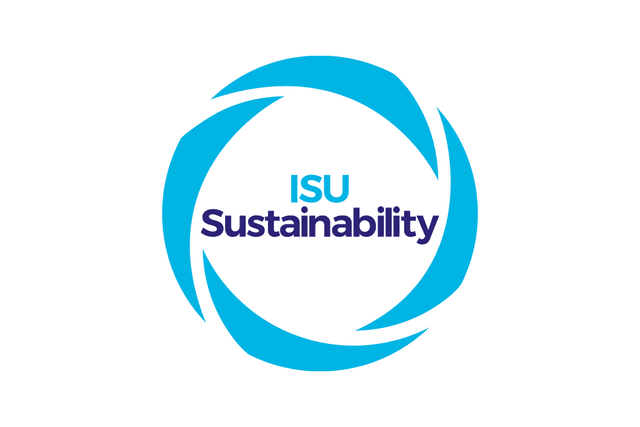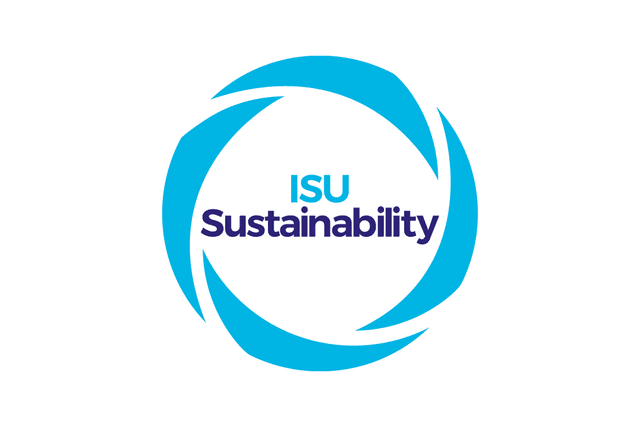Sustainability
The ISU endorses pioneering sustainable ice rink technology
05 Jun 2024
On occasion of the World Environment Day, the International Skating Union (ISU) highlights its support of a groundbreaking technology aimed at building eco-friendly temporary ice rinks. This innovative project, initiated through a collaboration between the Royal Dutch Skating Association (KNSB) and sponsor partner Daikin, was first introduced and tested during the ISU World Short Track Speed Skating Championships in Rotterdam (NED). Aligning with ISU Vision 2030 to commit to greater sustainable events, this initiative has set a new benchmark for environmental responsibility in ice-skating sports and achieved remarkable outcomes.
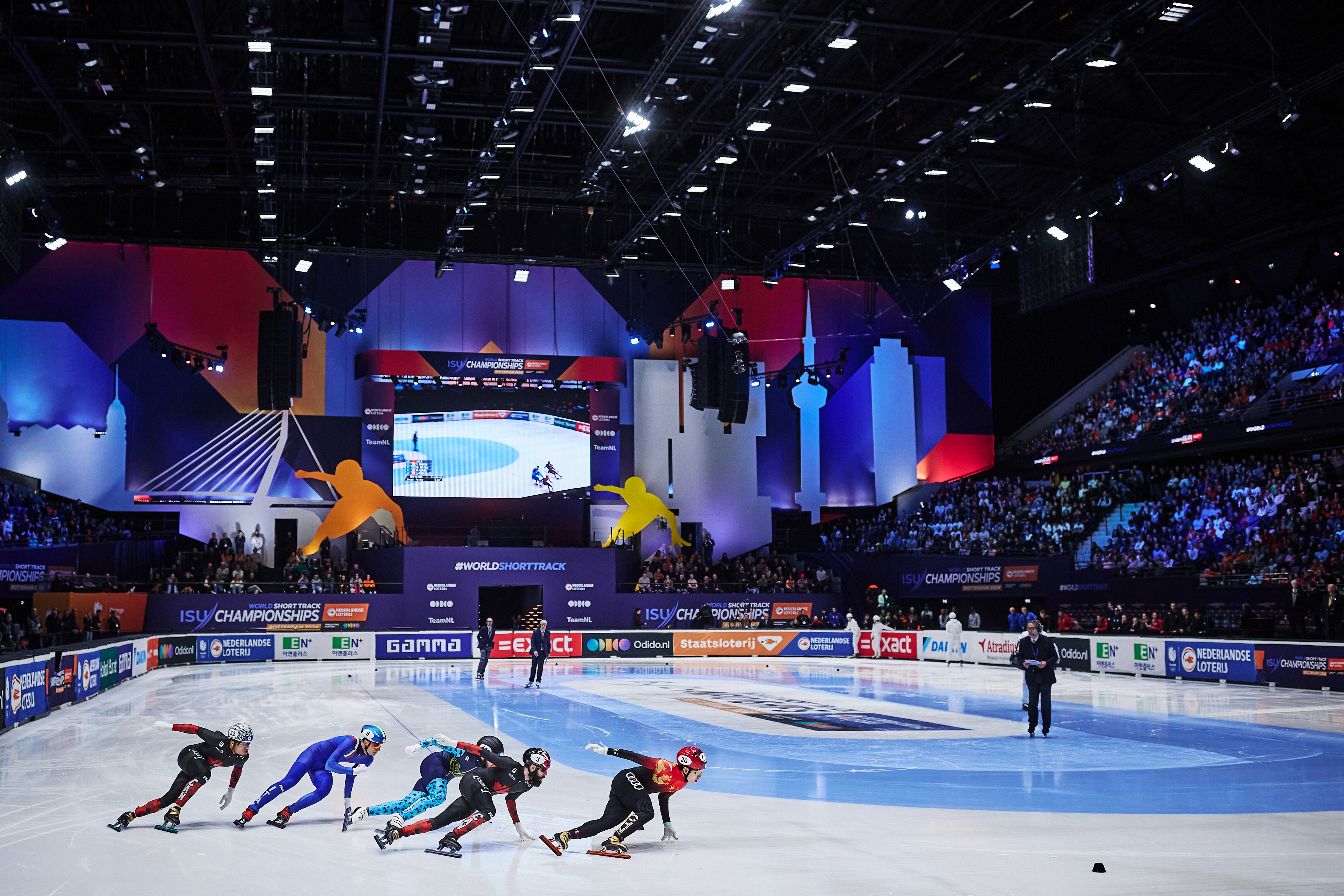
Skaters competing at the ISU World Short Track Speed Skating Championships at Ahoy Arena in Rotterdam, the Netherlands, 2024. © ISU
The foundation for this innovative project was laid in 2022 during a Sponsorship and Marketing summit in Seattle (USA) where sustainability in sports was the main focus. The ISU supported this idea from day one, and the resulting collaboration between Daikin, TIG Sports, and KNSB was fueled by a shared ambition to make tangible changes, leading to the creation in 2024 of the most sustainable temporary ice rink facility built to date (read KNSB report here). This joint effort has garnered interest from federations worldwide eager to learn from this model.
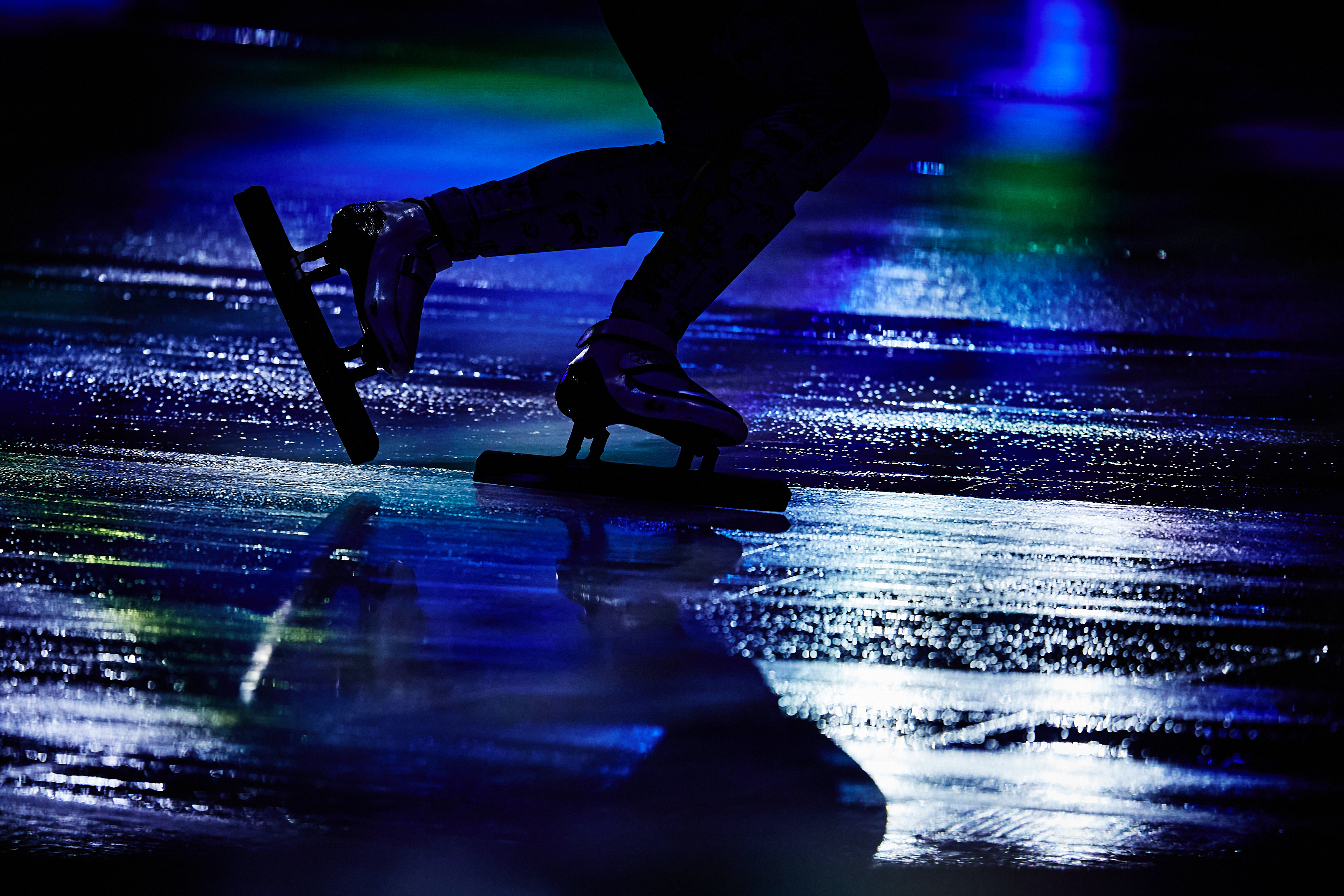
Ice surface close-up at the ISU World Short Track Speed Skating Championships at Ahoy Arena in Rotterdam, the Netherlands, 2024. © ISU
As the world’s leading manufacturer for heating and cooling energy-efficient solutions, Daikin provided cutting-edge materials and processes that drastically contributed to reducing the environmental footprint in temporary ice rink construction and operation (read Daikin statement here).
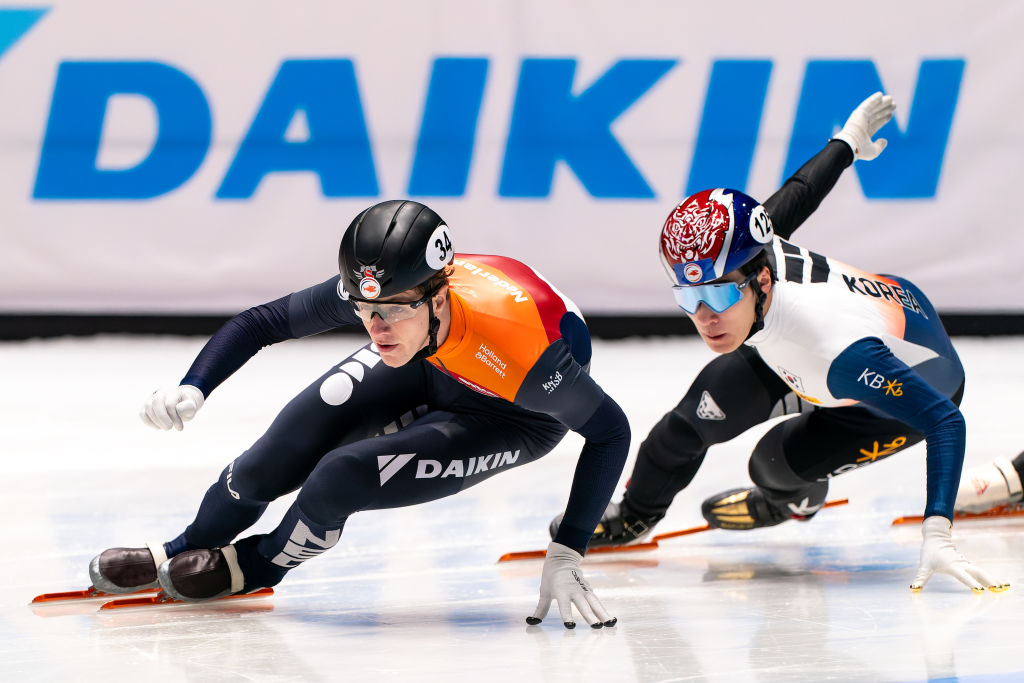
Teun Boer (NED) competing in the Men's 500m during the ISU World Short Track Speed Skating Championships at Ahoy Arena in Rotterdam, Netherlands, 2024. © BSR Agency
More specifically, this new system used state-of-the-art chiller units, which allowed for the rapid formation of high-quality ice coupled with a 41% reduction in energy consumption, setting standards for sustainability and energy efficiency in ice sports never achieved before.
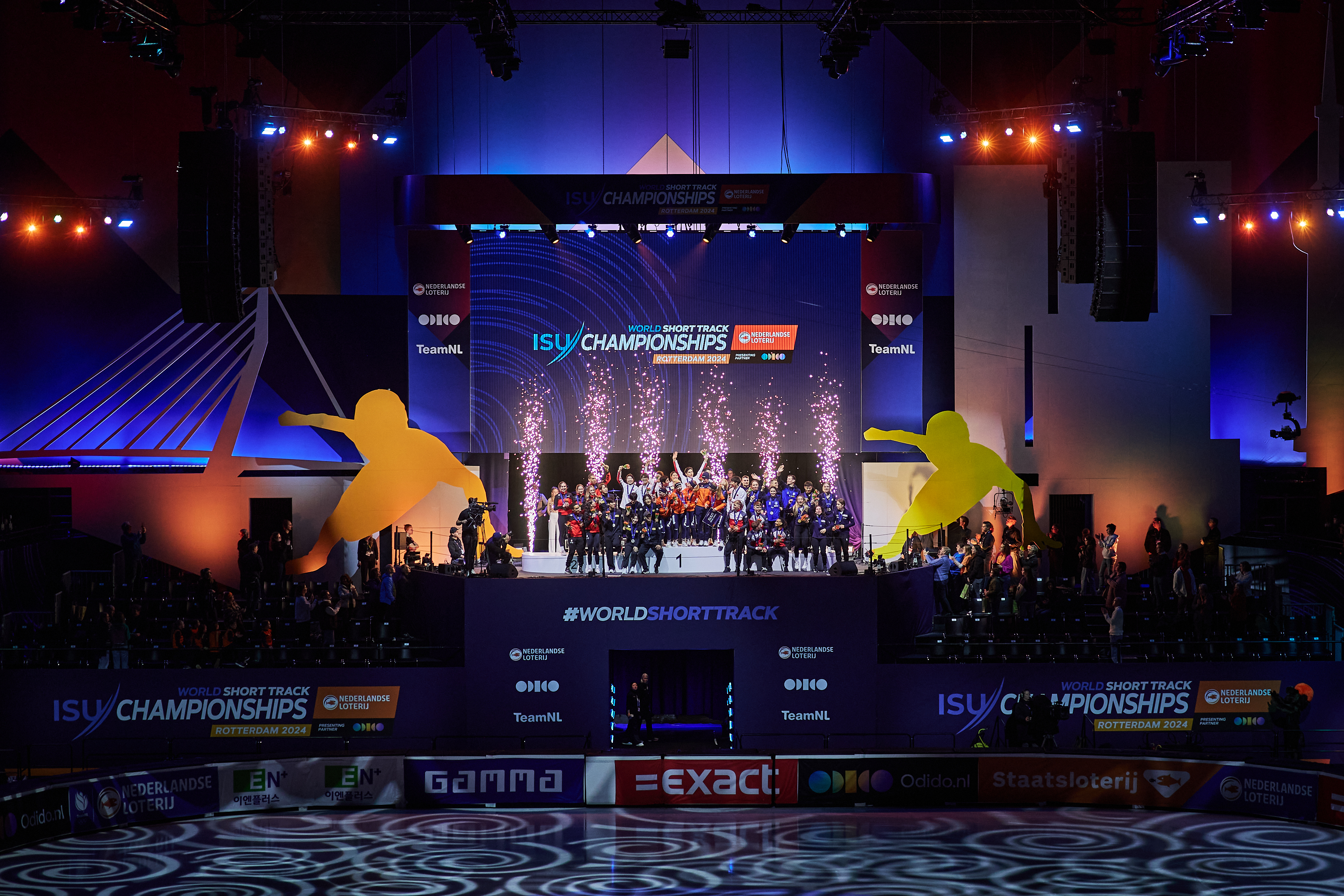
Closing ceremony at the ISU World Short Track Speed Skating Championships at Ahoy Arena in Rotterdam, the Netherlands, 2024. © ISU
Innovative ice-making and water conservation technology
As exemplified by the KNSB Sustainable Temporary Ice report, the newly implemented ice-making techniques led to significant water and energy savings, by comparison to the 2017 ISU World Short Track Speed Skating Championships which were also held at the Rotterdam Ahoy Arena:
In 2017:
- Energy consumption: 90.000 kWh
- Diesel consumption: 32.500 liters
In 2024:
- Energy consumption: 52.522 kWh (savings with the new Daikin chillers: 37.478 kWh, or 41% reduction).
- Diesel consumption: 1.800 liters (savings made with fixed power supply: 30.700 liters, or 94% reduction).
- Full capacity use of solar panels installed at the Ahoy Arena – 100% green renewable energy source.
- Innovative cooling technology: the special Daikin chillers are built with an automatic operation function that adjusts as the optimal temperature is reached, leading to substantial energy efficiency.
- Water used for resurfacing is heated by a combined system of heat recovery from the Daikin chillers and an extra air-cooled heat pump. With this fixed power supply, almost no diesel is needed for the water heating and ice maintenance process.
- Water conservation cycle: scraped snow is repeatedly returned to a circular system, in which the ice is melted into warm water and then reused in the ice resurfacing machine – equating to at least 50% water usage decrease.
Source: KNSB Sustainable Temporary Ice Rink Technology report (2024)
Overall, in addition to the demonstrated energy savings and cost efficiencies, this model has the benefit of being scalable to other venues – be they temporary or permanent locations – and other ISU events. Having successfully passed the initial testing phase at the ISU World Short Track Speed Skating Championships, this pioneering technology thus marks a significant step towards the ISU’s goal for the promotion and enforcement of environmentally responsible practices across all ice-skating competitions.
To know more about the ISU Sustainability Strategy, visit the webpage here.







